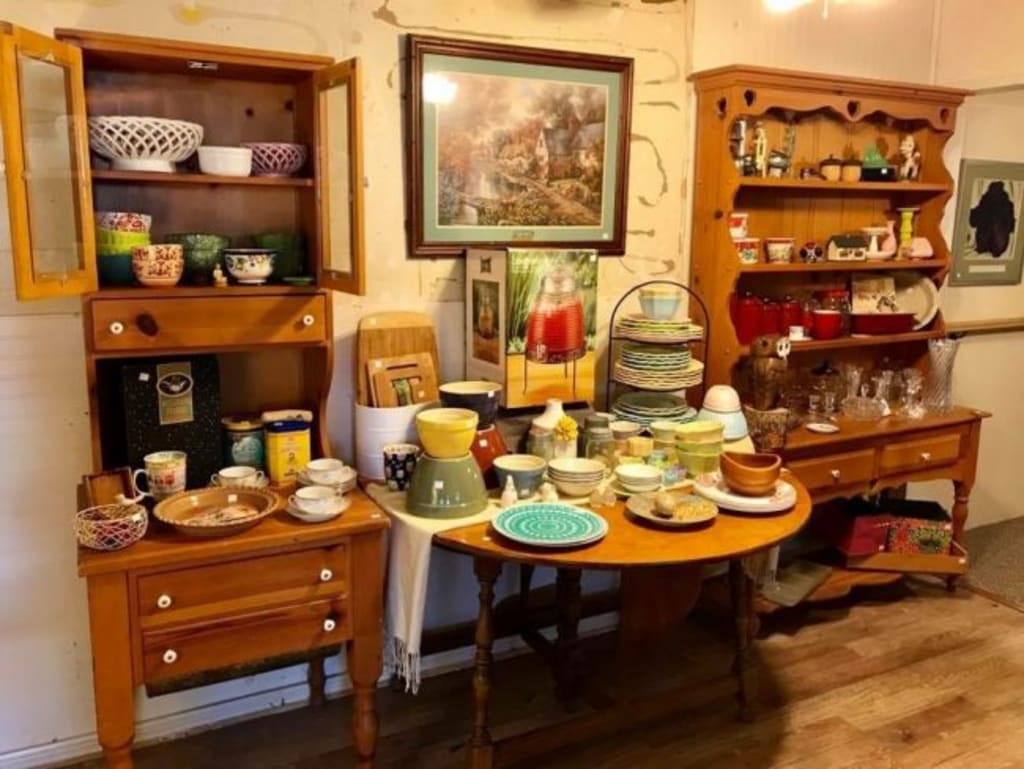Tips for Arranging an Estate Sale
To various people, the words "estate sale" can indicate different things. The definition of an estate sale can be interpreted in a variety of ways. Most individuals who aren't real estate brokers imagine an estate sale as furniture auction where other personal belongings are auctioned off to the general public. This is, without a doubt, one definition of an estate sale.

To various people, the words "estate sale" can indicate different things. The definition of an estate sale can be interpreted in a variety of ways.
Most individuals who aren't real estate brokers imagine an estate sale as furniture auction where other personal belongings are auctioned off to the general public. This is, without a doubt, one definition of an estate sale.
A large number of real estate brokers and others in the industry may mistakenly believe that an estate sale entails the sale of one of the heirs' homes.
Both definitions of "estate sale" are acceptable. Estate sales are sometimes known as "tag sales" in some parts of the country.
Guide to Organizing an Estate Sale
So, how do you organise an estate sale? What is the procedure for an estate sale? You've just been through the emotional turmoil of a family member's death, and now this?
Many people have never had to deal with the sale of a deceased relative's belongings. Hopefully, by the end of this article, you'll be able to avoid some of the most typical mistakes people make when selling a parent's or other relative's estate.
For those left behind, the death of a parent or relative is always difficult. The fact that you now have to pick through your loved one's belongings and determine what to do with them just adds to the stress.
However, it is critical to get things right with your loved one's estate because small errors can result in the loss of treasured items, both financially and emotionally. It's not always a matter of dealing with death, but rather a desire to downsize to a smaller home.
Determine which debts must be paid
When it comes to your deceased parent or relative's debts, the law is clear: you are not accountable for paying them as long as you are not a co-signer or a spouse. If obligations exist, they may need to be paid from the estate before heirs can receive benefits.
It's possible that the proceeds from the estate sale will be used to settle debts. You'll want to know exactly what liabilities you have and what the law says about them. If the case appears to be intricate or difficult to comprehend, it is essential to retain the services of an estate attorney to ensure that all of your bases are covered.
Before you begin sorting, make a plan
It's tempting to go through each room and sort through each item, but this isn't always the greatest approach. Some things are more significant than others, and you should seek them out and classify them while you're young and alert.
Family images, legal documents, medical paperwork, and personal conversations are likely to be high on the priority list. Go through each area and look for these items first, then sort them. Then go over the rest of the items—but not before consulting an expert who can tell you what is and isn't worth.
Speak with an appraiser
Understanding the worth of what you have is one of the most important things to remember while organising an estate sale. Unless you are a professional appraiser, establishing the value of everything in your relative's home will be difficult. People frequently overvalue some items while undervaluing others.
You may, for example, be passionate about photography and have a strong grasp of the worth of photography equipment. If your relative has such artefacts, you will immediately see that they should be carefully kept and sold only after they have been properly appraised. However, you may be unaware of the value of silverware.
If you have a bunch of silverware from a relative, you could be just as likely to sell it in a thrift store as you are to have it appraised, which could result in a significant loss if the relative has any valuable items.
A professional appraiser who specialises in estate sales may walk you through the property and provide you with a much more accurate estimate of the value of your belongings. You should only sell items that you are confident in their worth.
The appraiser would only be hired if you weren't planning on using a professional auctioneer who specialises in estate sale liquidation.
Don't let your emotional attachment to items overshadow their market value
Your most prized possessions might not be worth as much as you believe. Trying to sell anything for more than it's worth almost never succeeds, and it can often backfire—for example, when selling a home. If you advertise your relative's house for more than it is worth, it could stay on the market for months without selling.
Then you'll have to lower the price or pull it off the market entirely to sell it. You may have to sell the house for less than it would have sold for if you had priced it correctly from the start. These are commonly referred to as "house pricing errors."
The easiest way to discover the market value of the items you're seeking to sell is to speak with an appraiser. If you are sincerely devoted to your departed relative's goods, it may make more sense to keep them rather than try to sell them for a price that no one else would be prepared to pay.





Comments
There are no comments for this story
Be the first to respond and start the conversation.